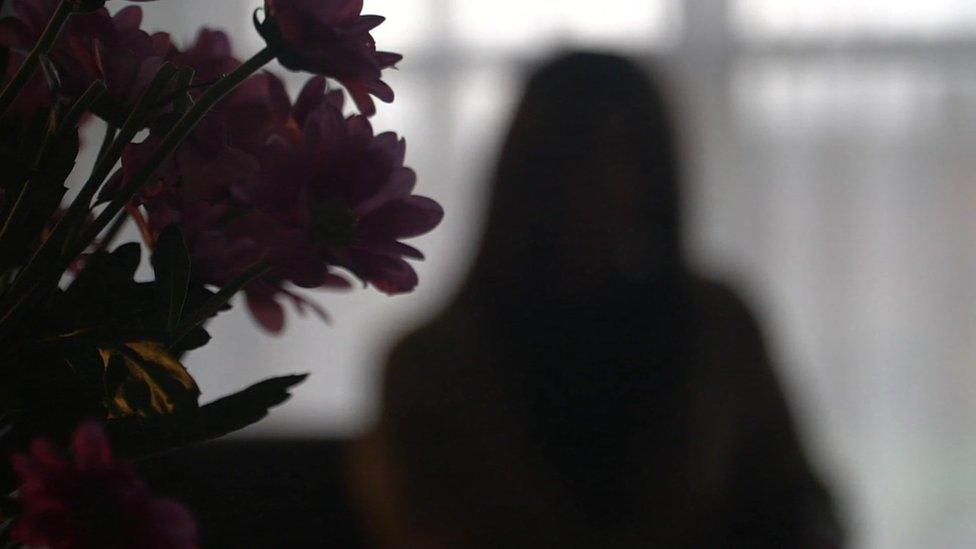New strangulation law planned to tackle abusers, says justice secretary
- Published
WATCH: Domestic abuse victim - 'He threw me against the wall and strangled me'
Justice Secretary Robert Buckland has said he hopes to make non-fatal strangulation a specific offence after a call by domestic abuse campaigners.
Too many violent offenders' sentences are not tough enough, he said.
And he added that strangulation can be a precursor to even more serious crimes against women.
Campaigners argue that perpetrators are often only charged with common assault, which carries a maximum of six months in prison.
Because non-fatal strangulation may not leave any marks on the victim, prosecutors do not bring more serious charges, they say.
Mr Buckland said: "There are too many violent offenders not getting sentences proportionate to the seriousness of their crimes because in many cases, prosecutors don't have adequate charging options where the victim has been strangled.
"The vast majority of these crimes are committed against women and they are often a precursor to even more serious violence."
The justice secretary hopes the new offence can be included in the Police and Sentencing Bill, although discussions are at an early stage.
Campaigners had called for a new offence to be part of the Domestic Abuse Bill. The Conservative peer Baroness Newlove was planning to table an amendment to this bill as it goes through the House of Lords. She won cross-party support during a debate in the Lords last week.
But the Ministry of Justice believes that as non-fatal strangulation can be used in situations other than domestic abuse, the legislation should have a broader context.

Justice Secretary Robert Buckland said strangulation was often a precursor to even more serious attacks on women
Welcoming the move, Nogah Ofer, a lawyer with the Centre for Women's Justice, which has been at the forefront of the campaign for a new offence said: "It is time that as a society we stopped normalising and ignoring strangulation.
"We look forward to police, prosecutors and medical professionals working together to address this with the seriousness it deserves, and hope that survivors of domestic abuse will have greater confidence to seek justice."
Campaigner Rachel Williams, who suffered strangulation during an abusive relationship, tweeted that it was "a great victory", external. She was shot and severely injured by her violent partner in 2011, who then killed himself.
Last week, the government said that non-fatal strangulation was already covered by existing legislation from common assault to attempted murder.
It is now looking at how a new offence was introduced in New Zealand. Parts of Australia and the US have also brought in similar measures.
During the Lords debate, crossbench peer Lord Anderson of Ipswich, a QC and former Independent Reviewer of Terrorism Legislation, warned that "hurried law can be bad law".
He asked whether a more generic offence of aggravated assault or recklessly endangering life might cover these circumstances and questioned how strangulation and suffocation would be defined in the law.
Related topics
- Published5 January 2021

- Published28 October 2019
